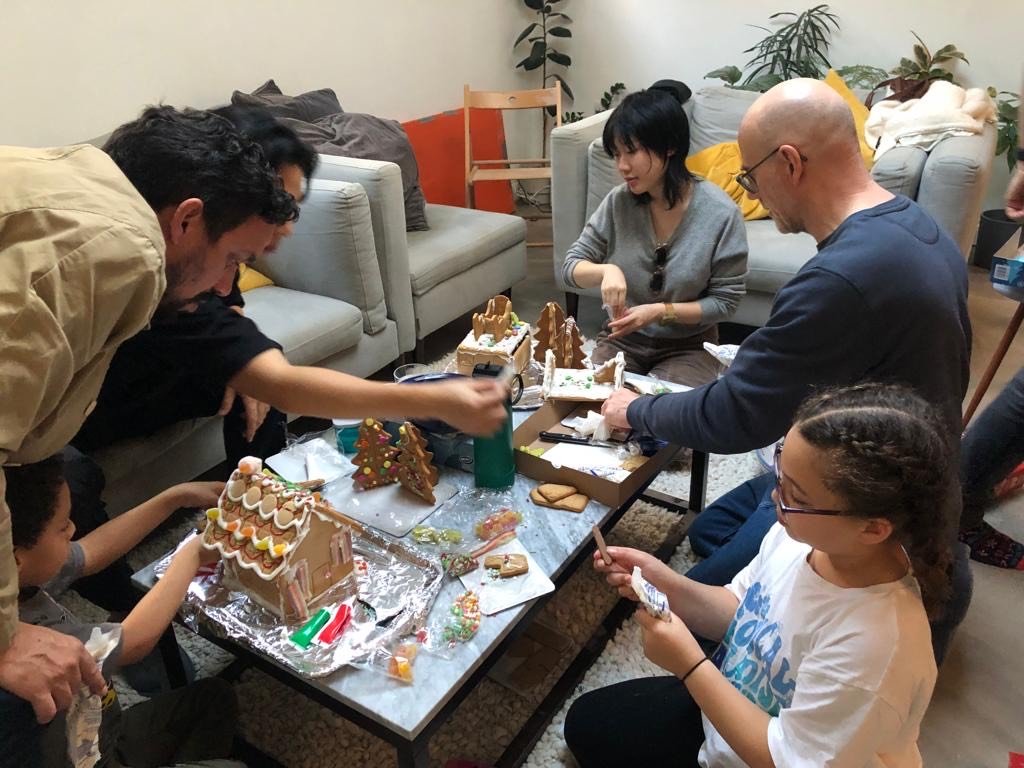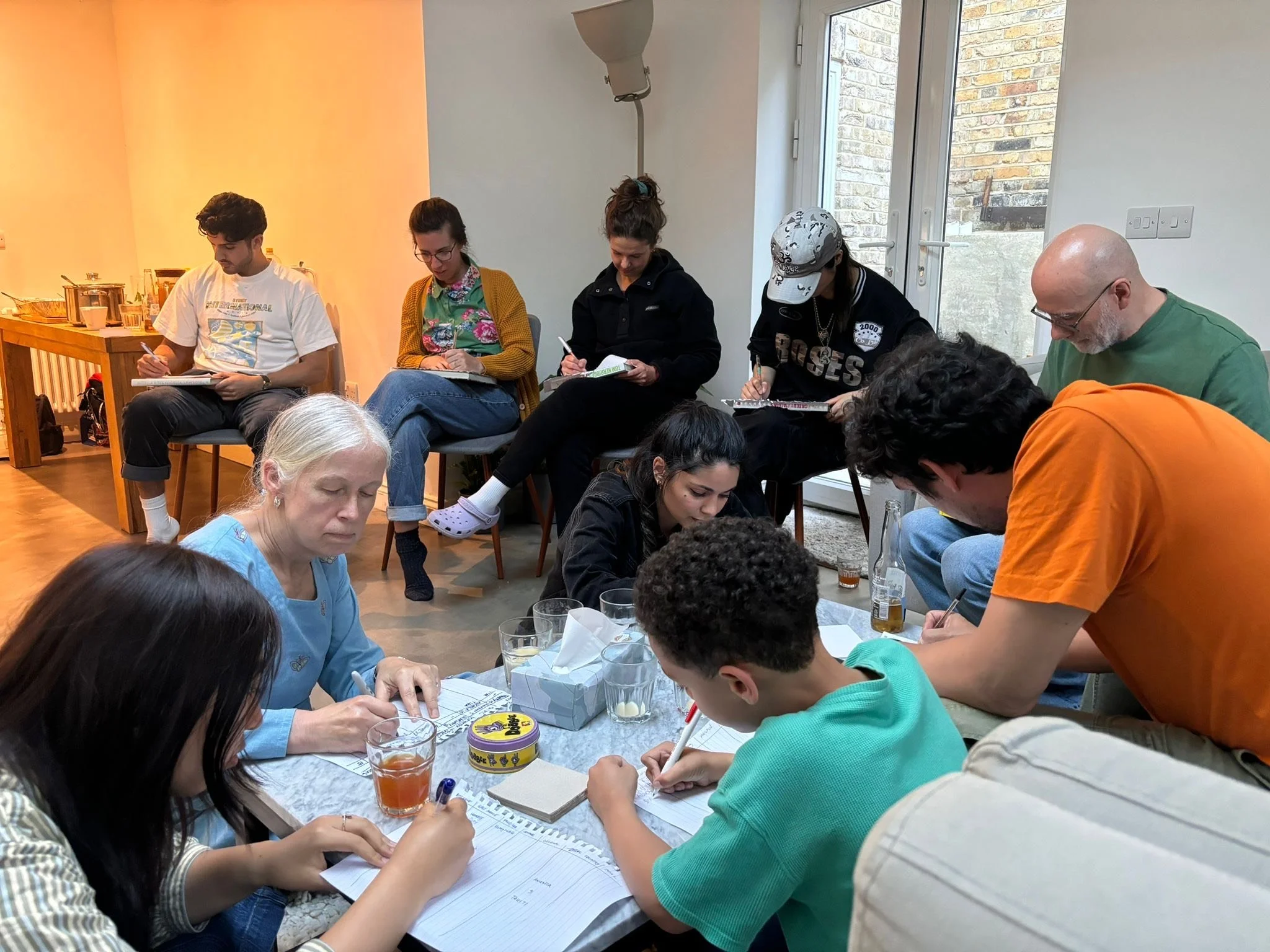What is a Gospel Community?
A Gospel Community camping at More Together 2024
Not everyone in Relational Mission may be familiar with the term ‘gospel community’, yet they are becoming increasingly common throughout our family of churches. We thought it would be a good idea to explore what these communities are, why they matter, and how they function and to do that, we asked Gordon Watson, Course Coordinator of The Urban Church Planting School, to share his insights.
Gordon unpacks the vision behind gospel communities and explains how they cultivate deep, mission-focused relationships that shape discipleship and everyday life.
Whether you’re new to the concept or already part of one, we hope this piece encourages and inspires you to get involved.
What is a Gospel Community?
by Gordon Watson
A Gospel Community is more than just a midweek group — it’s a way of life. It is a family of believers, shaped by the good news of Jesus, who intentionally live alongside one another in the same area, sharing life, mission, and discipleship in the everyday.
Life together: Eating food features highly in a Gospel Community!
What makes a Gospel Community distinct?
Presence & proximity – Gospel Communities are local! They gather in homes, cafés, parks, and workplaces. Living in close proximity allows relationships to form naturally and fosters cross-pollination between friendships, mission, and discipleship.
Acts 2:46 (ESV) – ‘And day by day, attending the temple together and breaking bread in their homes, they received their food with glad and generous hearts.’
John 1:14 (ESV) – ‘And the Word became flesh and dwelt among us, and we have seen his glory, glory as of the only Son from the Father, full of grace and truth.”
People & place – Gospel Communities seek to bring good news to people and the places they inhabit. They exist for the benefit of the local community, working for its good and partnering with others who care about its welfare—even if they are not of faith.
Jeremiah 29:7 (ESV) – ‘But seek the welfare of the city where I have sent you into exile, and pray to the Lord on its behalf, for in its welfare you will find your welfare.’
Isaiah 58:12 (ESV) – ‘And your ancient ruins shall be rebuilt; you shall raise up the foundations of many generations; you shall be called the repairer of the breach, the restorer of streets to dwell in.’
Intentionality – A Gospel Community doesn’t just happen. Those involved agree on who they are trying to reach—the neighbours, colleagues, and friends God has placed in their lives—and intentionally seek to love and serve them with the hope of Jesus.
Colossians 4:5-6 (ESV) – ‘Walk in wisdom toward outsiders, making the best use of the time. Let your speech always be gracious, seasoned with salt, so that you may know how you ought to answer each person.’
1 Corinthians 9:22-23 (ESV) – ‘To the weak I became weak, that I might win the weak. I have become all things to all people, that by all means I might save some.’
Life-on-life discipleship – Discipleship isn’t confined to structured meetings. Instead, it happens in the everyday rhythms of life, where people are invited into relationships that are gospel-centred, formative, and God-glorifying.
1 Thessalonians 2:8 (ESV) – ‘So, being affectionately desirous of you, we were ready to share with you not only the gospel of God but also our own selves.’
Deuteronomy 6:6-7 (ESV) – ‘And these words that I command you today shall be on your heart.’
Gospel-shaped identity – The gospel is not just a message to share but a foundation stone of the Gospel Community itself—shaping its relationships, mission, and way of life.
Romans 1:16 (ESV) – ‘For I am not ashamed of the gospel, for it is the power of God for salvation to everyone who believes.’
Philippians 1:27 – ‘Only let your manner of life be worthy of the gospel of Christ.’
An example from Revelation Church, London
Celebration: Celebrating Christmas together
Revelation Church (‘Rev’) has an increasing number of Gospel Communities across North London. These groups gather midweek for meals, prayer, and discipleship, supporting one another in their mission to make Jesus known where they live, work, rest, and play.
Gospel Communities are an ideal model for a fast-paced city like London, where people often identify closely with the community surrounding their local tube station. This encourages Rev members to be intentionally present in their local neighbourhoods and form gospel-centred relationships with those they live among.
In other settings—such as towns or regional cities—Gospel Communities often take shape around residential areas or distinct neighbourhoods and estates. Regardless of the location, the goal is to embed life-on-life discipleship into the weave and fabric of the everyday.
How might a Gospel Community compare to other church community models?
Gospel Community
Centred on the gospel, shaping how relationships, discipleship, and mission take place.
Presence and proximity—local, relational, and embedded in neighbourhoods.
Discipleship happens naturally in daily life, both with the churched and unchurched.
Complements a larger church gathering by providing localised mission and low-level pastoral care.
Missional Community
Centred on a mission focus—reaching a specific people, place, or passion.
More structured towards a missional objective, often crossing different locations.
Often more evangelistically driven, working towards missional multiplication.
May operate independently or as part of a broader church growth strategy.
Small Group
Centred on gathering for fellowship, teaching, and pastoral care.
More inward-focused on growth and support within an existing church.
Often structured around welcome, worship, word, and witness. It can become needs or crisis-driven.
Usually remains part of an established church rather than forming something new.
Church Plant
Centred on establishing a fully formed church with New Testament leadership, preaching, and sacraments.
Aims to gather & grow a congregation, develop leaders, and establish church structures.
Has the vision to eventually develop towards becoming a self-sustaining church community.
Becomes a gathered congregation, offering a fuller expression of church life.
Christmas fun: Gingerbread house-making competition
While all these models could evolve into church plants over time, Gospel Communities remain distinct because the gospel itself forms and sustains them—not just as a message to share but as the organisational foundation of their shared life together.
How Gospel Communities serve as a natural stepping stone
Rather than requiring formal structures or a high degree of centralised church input, Gospel Communities serve as a natural stepping stone for people to:
Grow in Discipleship – By sharing life closely with one another (presence & proximity), members are encouraged, supported, strengthened, and held accountable in their day-to-day walk with Jesus.
Step Into Mission – Because Gospel Communities are locally embedded, mission happens naturally. People are not sent into unfamiliar contexts but encouraged to engage with the people and places of their locale. This makes mission and evangelism more relational, authentic, sustainable, and fun!
Engage in Community Care – Rather than relying on a centralised church programme, Gospel Communities empower members to identify and organise themselves to respond to local needs—whether that’s supporting a struggling family, partnering with existing community initiatives, or simply being present in times of crisis.
Young and old: A Gospel Community seeks to be a place everyone can take part, no matter their age, background or Christian understanding!
A model that works in both small and large settings
Gospel Communities function effectively in both smaller, pioneering contexts and larger, established churches (including multi-site).
For small churches or church plants they provide a contextual foundation for mission and discipleship without requiring immediate, large-scale Sunday gatherings. This allows new church expressions to develop naturally from community life rather than being built around a larger weekly event.
For larger churches, Gospel Communities offer a scalable way to extend the reach of mission and appropriate low-level pastoral care across a wide area without needing constant oversight from church leadership. They allow churches to remain deeply local while still being part of something bigger. They also release members into mission without the expectation that they must replicate the full structure of a Sunday service—freeing them to focus on relational discipleship and everyday gospel mobility and witness.
Why Gospel Communities matter
In an age where life is increasingly fragmented and disconnected, Gospel Communities offer a way for believers to live missionally without, ideally, adding a burdensome rhythm to already busy lives.
Whether they remain small, relationally driven groups or develop into future church plants, they play a vital role in ensuring that the good news of Jesus is embodied and shared in estates, neighbourhoods, workplaces, and communities.
by Gordon Watson
Gordon has been married to Natalie for 19 years, and together, they are adoptive parents to two young adults. In 2018, they were sent from Cornerstone City Church (Medway, UK) to plant Hope Church Sittingbourne (Kent, UK). Today, Hope Church is an established community that meets throughout the town during the week and gathers together on Sundays.
Gordon holds a Master's degree in Missional Leadership, is an avid Charlton Athletic supporter and serves UP: The Urban Planting School as the Course Co-ordinator.






